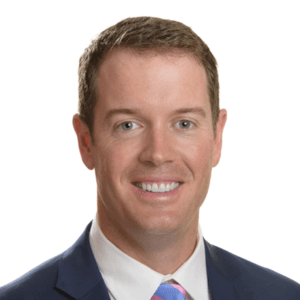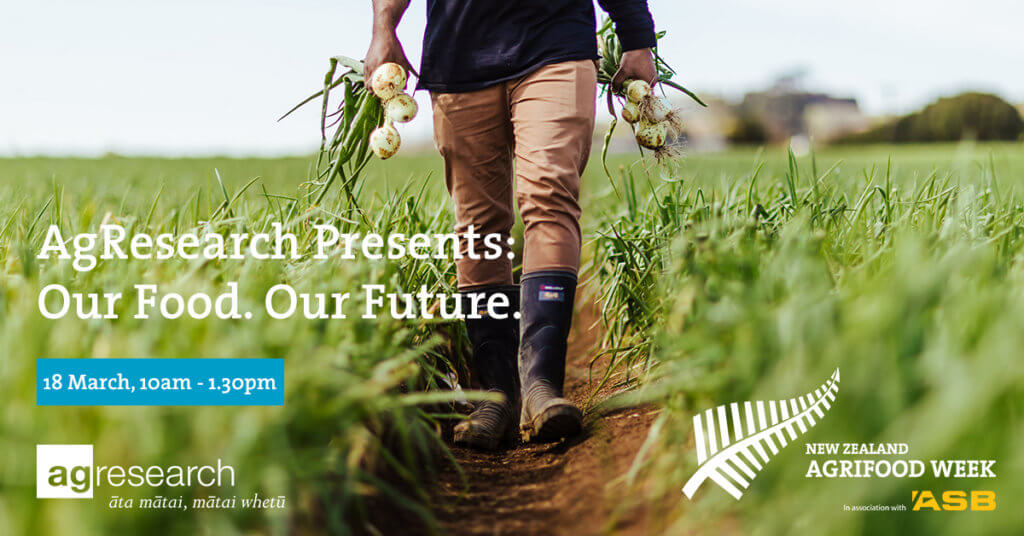Farmer and WWF Global Expert on Livestock calls for beef to be a lighthouse industry
Meet Ian McConnel – Global Expert on Livestock at World Wildlife Fund (WWF) and one of the headline speakers for AgResearch Presents: Our Food. Our Future.
“The industry has a bright future. When it is done right, beef can be one of the most sustainable proteins on the planet.”
As a 5th generation Australian beef farmer and World Wildlife Fund (WWF) Global Expert on Livestock, Ian McConnel is passionate about the potential of beef and the health of our globe.

However, he also believes that potential isn’t going to become a reality without substantial culture change, collaboration and ambition.
“It’s evident that consumers are changing the way they are eating and thinking about eating. Looking at global data trends – trends that are already touching down in NZ – it’s important that we respond – and quickly. Long term goals are great but we need to move towards them with a short term urgency — much like an urgent tortoise, if he knows he needs to move across a paddock, he’ll get there.”
Currently sitting on the Global Roundtable for Sustainable Beef, Ian has an open world view of industry issues.
“In the past the rhetoric against red meat has largely gone unchallenged. With changing trends, rather than simply fight, it’s important to understand where the world is going and how our industry can align, adjust our messaging, and make important globally minded changes.
Ian doesn’t just talk about change, he walks the talk. “Even on our farm, we are making changes to respond to what we’re seeing in global trends and consumer perceptions. It’s hard but important.”
So how do we collaborate in making necessary changes to keep up with global demand?
Ian believes it’s important for environmental agencies and consumers to understand and respect why farmers do what they do – the land, the heritage, the animals, and the lifestyle.
“Change will happen when there is mutual respect, collaboration and understanding. We are a trusted industry, but we must be honest and own our role in the global needs, use the language consumers are using, and meet them where they are at”.
He believes it must start with ownership, followed closely by goals and accountability – applied to large industry and at the farm level.
“The good news? Work is already being done. We are seeing it at the Global Roundtable working group and we’re seeing regional groups drive change towards these goals.”
“That being said, we have to be honest. If we look at the 17 Sustainable Development Goals, we haven’t done enough yet as an industry. We should double our input, ambition, and align our understanding if we want our industry to have a voice in future markets and trends.
Only two countries have set carbon-neutral goals – AUS and NZ – and we have such a great opportunity to be a lighthouse industry! Let’s let our ambition shine and show the world what we can do with our products – including beef.”
Join Ian and learn about how the beef industry can work towards meeting global trends at the Ag Research Presents: Our Food. Our Future.
About Ian:
Ian McConnel is World Wildlife Fund’s (WWF) Global Expert on Livestock and a globally recognised expert on Animal Production Systems. A 5th generation beef producer, Ian gained a Bachelor of Science in Animal Studies at the University of Queensland and then spent a year at Colorado State University supporting meat science and genetics research. He joined the Queensland government extension service in 2003 as a sheep and cattle extension officer in remote western Queensland and then continued in south east Queensland. Ian pioneered innovative extension and outreach tools in remote Australia and led the trialling and development of remote animal management systems.
After joining WWF-Australia in 2012 to lead their Australian Beef industry engagement, he then rose to become their global lead for beef in 2014. In this role, Ian is an executive committee member of the Global Roundtable for Sustainable Beef and actively involved in efforts to improve the economic, social and environmental impacts of livestock production in 15 countries. His work includes developing markets for sustainably produced beef, research and extension projects, policy development and consumer facing education.
Will you join us? Get your tickets now for AgResearch Presents: Our Food. Our Future.
